CPAP therapy is widely used for sleep apnea, but it’s not always the right solution for everyone. Fortunately, there are several alternatives to CPAP for sleep apnea, such as lifestyle changes, oral devices, and advanced procedures, that can provide effective management of the condition.
The apnea pauses in breathing, can last for seconds or minutes, and can occur as often as 30-60 times an hour. The sleeper may be unaware of the problem, but in many instances will suffer significant fatigue over time.
If you don’t like the thought of sleeping with a mask on, here are 5 CPAP alternatives. Even Better, Contact Penn Medicine Becker ENT & Allergy.
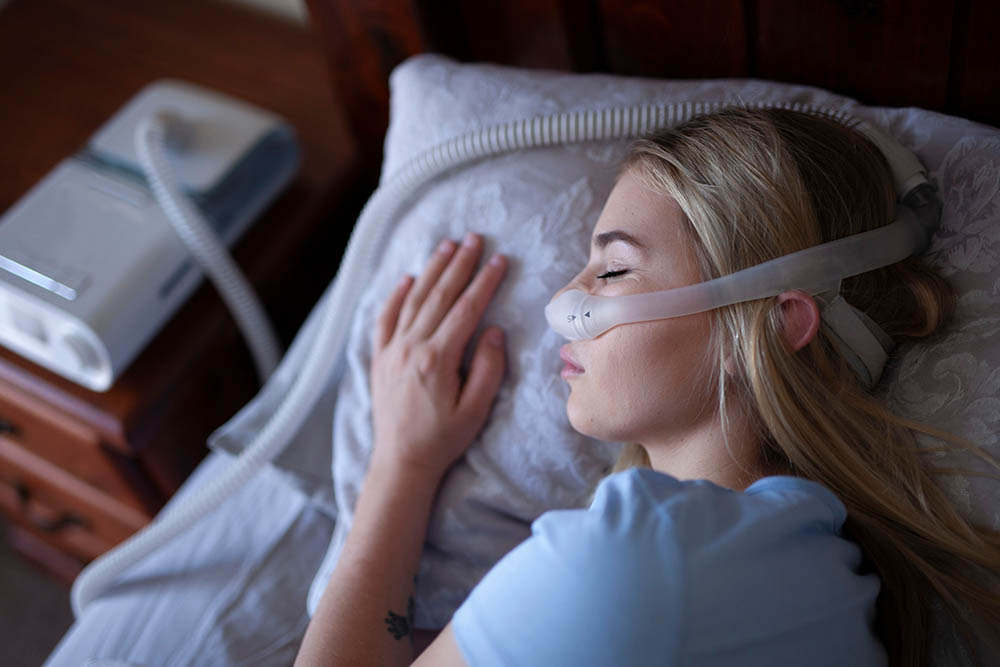
Approximately 50% of patients prescribed CPAP therapy stop using it within the first year According to The National Sleep Foundation.
Essential Insights on Sleep Apnea Management
- Obstructive Sleep Apnea (OSA) is a common sleep disorder affecting millions, with snoring and fatigue as frequent symptoms.
- You are not alone, up to 12 million Americans suffer from Obstructive Sleep Apnea according to The National Sleep Foundation.
- Alternative treatments to CPAP, including oral appliances and various surgical options, offer effective solutions for different severities of sleep apnea.
- CPAP machines are a common treatment for obstructive sleep apnea, but they don’t work for everyone.
- Professional consultation is crucial, as personalized treatment plans based on the type and severity of sleep apnea can enhance treatment efficacy and patient well-being.
What Are the Alternatives to CPAP Therapy?
A CPAP machine (Continuous Positive Airway Pressure) is a non-invasive device used to treat obstructive sleep apnea. It delivers a constant stream of pressurized air through a mask worn over the nose and/or mouth, helping to keep the airway open during sleep. This prevents airway collapse, reduces snoring, and improves breathing in people with sleep apnea. While CPAP is highly effective for many, it isn’t the right fit for everyone. For those who find it uncomfortable or difficult to tolerate, several alternative treatment options are available.
1. Lifestyle Changes to Help Sleep Apnea (Without CPAP)
Excess weight and alcohol consumption have been identified as contributors to sleep apnea. By avoiding alcohol before bedtime, adhering to recommended intake levels, and adopting a healthier lifestyle, you can mitigate the severity of sleep apnea symptoms. These adjustments are simple, cost-effective, and not only reduce sleep apnea risk factors like obesity and alcohol use but also enhance overall health.
However, they may not fully address severe cases and demand substantial personal commitment, which can be challenging to sustain.

2. Oral Appliance Therapy for Sleep Apnea
Oral appliances, commonly used for snoring, can also treat sleep apnea as snoring is a symptom of this condition. These devices, resembling mouth guards, are worn during sleep and function by advancing the lower jaw forward. This action prevents the collapse of soft oral tissues, thus reducing airway obstruction.
These devices are particularly effective for mild to moderate sleep apnea. However, they need to be professionally fitted to prevent issues like jaw pain, dental problems, or gum irritation.
Potential side effects from poor fitting include pain in the jaw, face, and teeth, excessive saliva production, and irritation of the gums. Oral appliance therapy is portable and less intrusive compared to CPAP machines, does not require electricity, and is ideal for travel. Yet, its effectiveness can vary, and it necessitates professional fitting and periodic adjustments to ensure safety and efficacy.
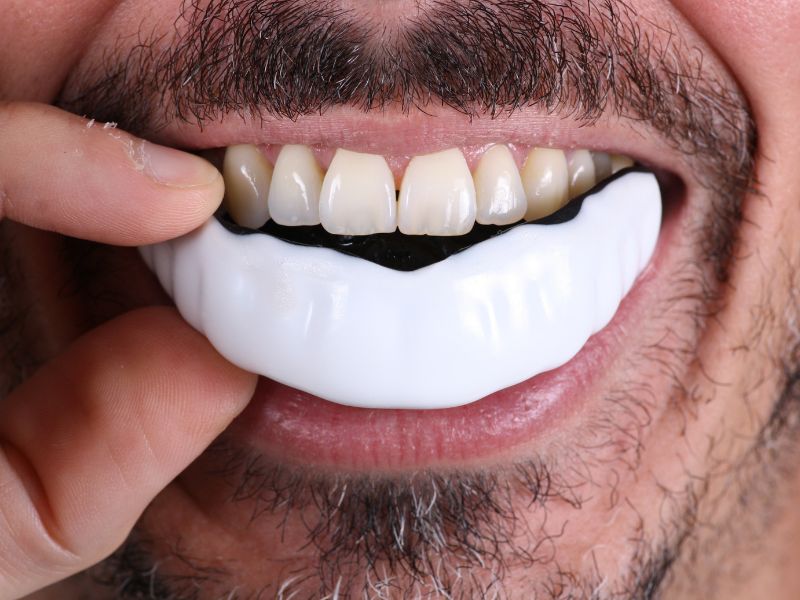
3. Palate Procedures to Reduce Snoring and Apnea
An unusually soft palate can contribute to sleep apnea and snoring. Treatments like the Pillar Treatment and Radiofrequency Ablation work to stiffen this area. These techniques create small scars, which makes it more firm. This reduces how prone it is to block the airway as someone sleeps.
These minimally invasive procedures are quick, taking about 20 minutes, and are done under local anesthesia in the doctor’s office. They can improve sleep quality and reduce snoring, particularly for mild sleep apnea cases, with short recovery times.
However, they may not be suitable for severe sleep apnea, and some patients might experience minor discomfort or light bleeding after the procedure.
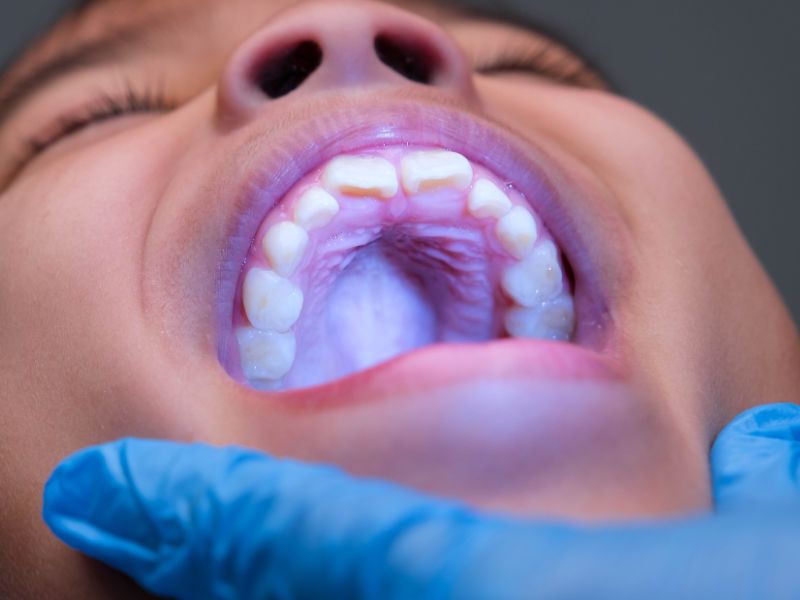
4. Tongue Base Reduction for Severe Sleep Apnea
If an enlarged tongue base causes your airway to become blocked during sleep, Radio Frequency Ablation can assist. This procedure reduces the size of the tongue base. It makes breathing simpler and diminishes sleep apnea symptoms. It presents a less risky alternative compared to major surgeries. This surgery can produce substantial bleeding or lasting swallowing problems.
However, it’s not the right choice for every type of sleep apnea. Some patients might have brief pain, swelling, or difficulty with swallowing after the procedure. Monitoring its effectiveness across time to ensure continued results remains vital.
To see if this option is right for you, contact Penn Medicine Becker ENT & Allergy today!
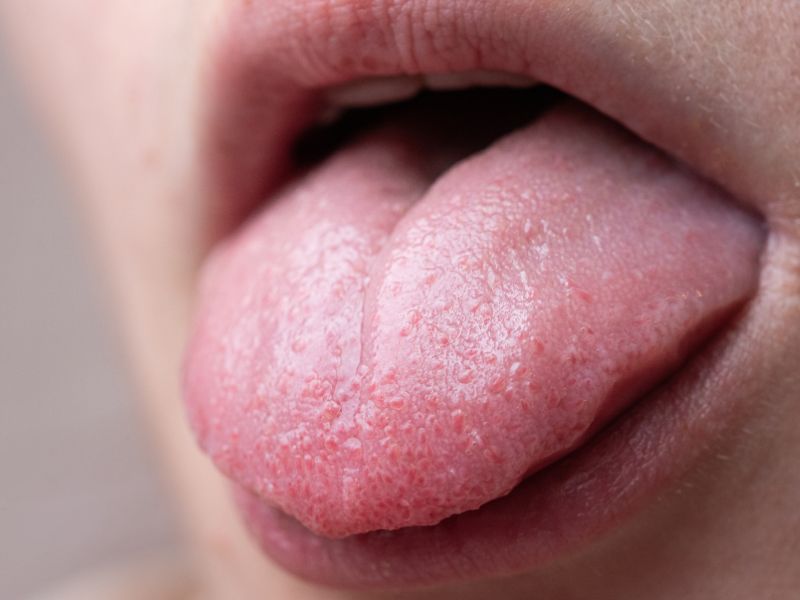
5. Surgical Alternatives to CPAP for Sleep Apnea
Enlarged tonsils, an elongated palate, or an enlarged uvula may play a role in sleep apnea. If non-invasive methods do not work, surgical procedures, which go from a basic tonsil removal to a more involved Uvula-Palato-Pharyngo-Plasty (UPPP), might bring comfort. These surgeries have the potential to permanently resolve sleep apnea caused by physical obstructions, improving quality of life and mitigating the risk of serious health issues.
However, they are more invasive, carry a higher risk of complications, require a longer recovery period, and typically necessitate general anesthesia. Patients suspecting sleep apnea should consult with our physicians to evaluate the best treatment options.
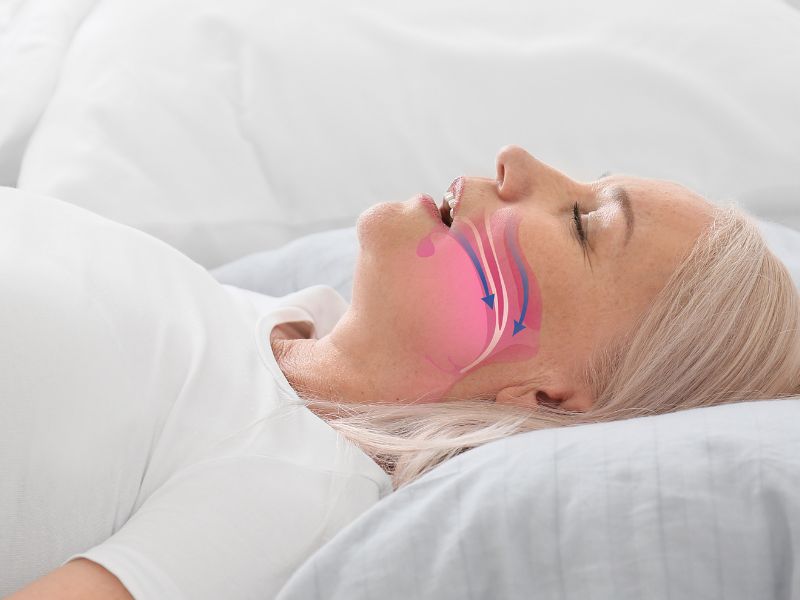
Secure Your Safe Treatment Experience with Penn Medicine Becker ENT & Allergy
Join our satisfied clients who’ve experienced safe, effective treatments.
Emerging Treatments and Latest Research in Sleep Apnea Management
Hypoglossal Nerve Stimulation
This is a relatively new treatment, hypoglossal nerve stimulation involves implanting a device that stimulates the nerve controlling the tongue’s movements during sleep, thus keeping the airway open.
Studies show this treatment to be effective for patients with moderate to severe obstructive sleep apnea who cannot tolerate CPAP.
Expiratory Positive Airway Pressure (EPAP) Devices
These small, disposable devices are placed over the nostrils at night. They allow air to flow freely into the nostrils but restrict the airflow out, creating positive pressure to keep airways open.
Studies show that EPAP devices can significantly lower apnea-hypopnea index scores, particularly in mild to moderate cases of sleep apnea. Their convenience and ease of use make them a popular choice, with many patients finding them comfortable and easy to stick with.
Drug-Induced Sleep Endoscopy (DISE)
An innovative diagnostic procedure where patients are sedated to simulate sleep, allowing specialists to observe and identify the specific sites of airway obstruction.
DISE helps in customizing the treatment plan, potentially improving the success rates of surgical interventions by targeting precise anatomical sites of obstruction.
Upper Airway Nerve Stimulation
A small device implanted under the skin stimulates nerves to keep the airway open during sleep. This might be a good option if you find CPAP masks uncomfortable or if they tend to leak.
Combination Therapy
Combining different therapeutic approaches, such as CPAP with oral appliances or behavioral modifications, enhances overall treatment efficacy.
The combination therapy can lead to better management of sleep apnea symptoms for some patients, particularly those who struggle with CPAP compliance.
Limitations of CPAP Therapy
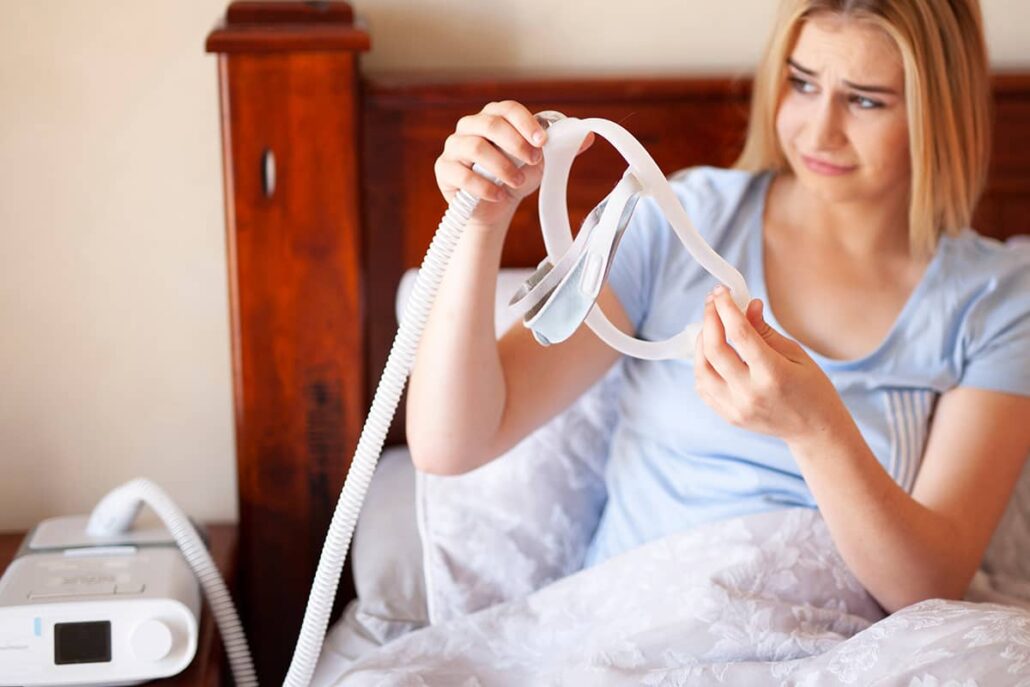
CPAP (Continuous Positive Airway Pressure) machines are effective for many people, but they do have some limitations that can affect your experience and treatment success.
One key limitation is the type of sleep apnea being treated. CPAP works best for obstructive sleep apnea (OSA), where the airway becomes blocked during sleep.
However, it’s less effective for central sleep apnea (CSA), which occurs when the brain doesn’t send the right signals to control breathing.
If you have CSA, it’s important to explore other treatment options with a sleep specialist.
While CPAP can improve sleep quality for many, some find the equipment uncomfortable or difficult to use consistently. Issues like poorly fitting CPAP masks, air leaks, or trouble adjusting to the machine can disrupt sleep and make treatment feel frustrating.
Obstacles such as excess tissue in the throat or nasal passages could reduce the effectiveness of CPAP. Our experts at Penn Medicine Becker ENT & Allergy will find the best solution for your case. Visit us at one of our 17 offices throughout New Jersey and Pennsylvania.
Factors to Consider When Choosing an Alternative to CPAP
If you’re looking for an alternative to CPAP (Continuous Positive Airway Pressure) for managing sleep apnea, it’s important to explore options that best suit your condition and lifestyle. Here’s a simplified guide to help you understand your choices better:
Understand Your Sleep Apnea
The type and severity of your sleep apnea play a crucial role in deciding the right treatment.
- Mild Sleep Apnea: Weight loss, regular exercise, or oral appliances may provide sufficient relief without the need for intensive interventions.
- Moderate to Severe Sleep Apnea: Surgical options, such as tongue base reduction or palate procedures, or alternative therapies like EPAP devices, may be necessary.
- Positional Sleep Apnea: Symptoms triggered by sleeping in specific positions can often be managed with positional therapy or lifestyle adjustments.
- Complex or Central Sleep Apnea: Requires specialized approaches, such as adaptive servo-ventilation (ASV) devices or other advanced treatments.
Think in Your Current Lifestyle
Consider how treatments align with your daily routine:
- Convenience: Non-invasive options like oral appliances or EPAP devices are less cumbersome for travel or home use.
- Comfort: Surgical procedures or minimally invasive options may suit individuals struggling with mask discomfort or CPAP adherence.
Consult a specialist at Penn Medicine Becker ENT & Allergy to evaluate the most suitable alternative for you, ensuring it aligns with your health needs and personal preferences.
Tailoring Your Sleep Apnea Treatment
CPAP therapy is the most common treatment for those with moderate-to-severe sleep apnea, but there are other effective alternatives worth considering. It’s important to discuss these options with a healthcare provider to find the best match for individual needs and lifestyles.
Alternative treatments such as weight loss, oral pressure therapy, and upper airway nerve stimulation can provide relief from symptoms of sleep apnea and improve the quality of restorative sleep. By exploring these different alternatives, people with sleep apnea can find a more tailored solution that fits their health condition and helps them get the most out of their treatment.
Why Choose Penn Medicine Becker ENT & Allergy?
If CPAP isn’t working for you—or you’re just starting your sleep apnea journey—our team is here to help. At Penn Medicine Becker ENT & Allergy, we go beyond the basics. Our board-certified ENT specialists and sleep experts offer personalized care based on your unique symptoms, sleep study results, and lifestyle.
We provide a full range of treatment options—from CPAP support and custom-fitted oral appliances to minimally invasive procedures—all in one place. With advanced diagnostic tools like Drug-Induced Sleep Endoscopy (DISE), we pinpoint the exact cause of your airway obstruction for more effective, targeted treatment.
You’ll also benefit from:
- 17+ locations across NJ and PA for easy access to expert care.
- In-depth consultations that help you understand your condition and treatment choices.
- A team approach, working closely with your sleep physician or referring provider.
- Compassionate, ongoing support—we don’t just treat you, we partner with you.
Consult With a Sleep Apnea Expert in NJ & PA
If you’re experiencing symptoms of sleep apnea or looking for effective alternatives to CPAP therapy, don’t hesitate to reach out for professional advice. At Penn Medicine Becker ENT & Allergy, our experts specialize in diagnosing and treating sleep disorders, ensuring you receive the most effective and personalized care possible. Schedule your consultation today to explore your treatment options under the guidance of our skilled ENT specialists. Take the first step towards improving your sleep quality and overall health by contacting us now!

